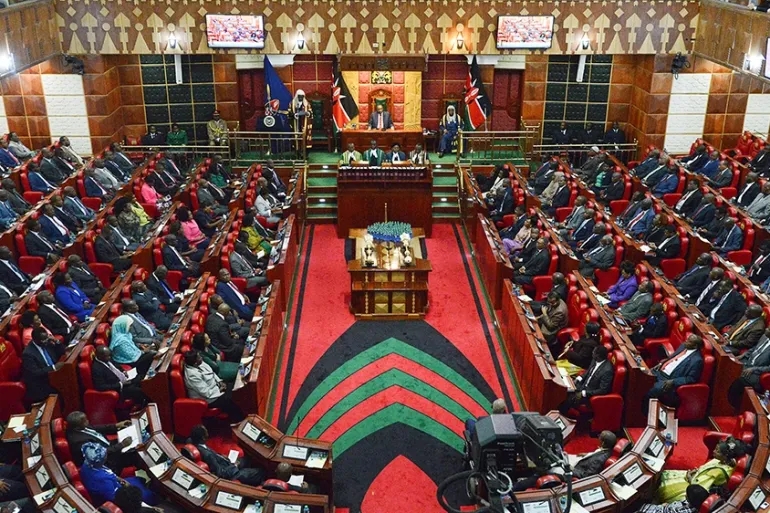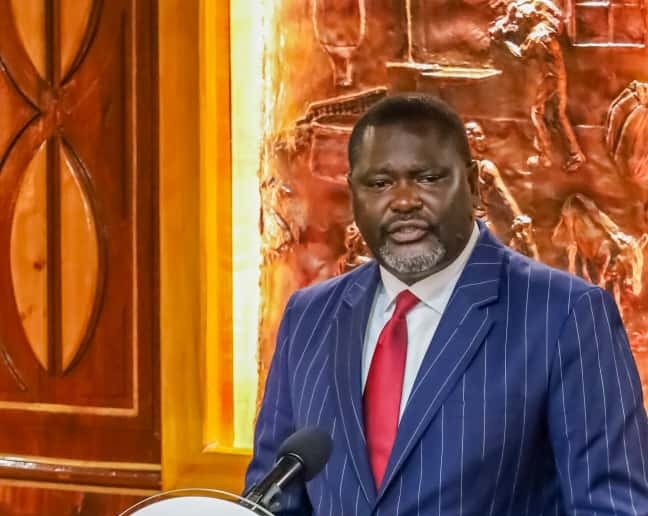 Deputy Chief Justice Philomena Mwilu addressing judicial officers at the close of the Judiciary Management Team retreat at the Lake Naivasha Resort hotel. /JUDICIARY
Deputy Chief Justice Philomena Mwilu addressing judicial officers at the close of the Judiciary Management Team retreat at the Lake Naivasha Resort hotel. /JUDICIARYDeputy Chief Justice Philomena Mwilu has called on judicial officers and institutional managers to ground every aspect of public service in unwavering integrity, saying it's the single most important pillar of public trust in the Judiciary.
Speaking on Saturday at the Lake Naivasha Resort hotel during the close of the Judiciary Management Team retreat, Mwilu said integrity is indispensable to the sustainability, credibility and legitimacy of justice institutions.
The retreat was convened to assess progress made under the Social Transformation through Access to Justice (STAJ) blueprint and to align institutional priorities with its long-term vision.
“Integrity is the bedrock upon which public trust rests. Without integrity, no amount of innovation, policy reform or institutional investment can sustain the Judiciary,” she said in her opening caution to the management cadre drawn from across the institution.
Reinforcing the centrality of moral leadership, Mwilu added: “At the heart of everything we do lies one powerful truth: the moral compass of the Judiciary is calibrated by our collective integrity. Doing the right thing—even when no one is watching, even when it costs us—is the ultimate measure of our leadership.”
The deputy CJ reminded the gathering that integrity is not an abstract aspiration but a daily duty, saying that judicial officers and administrators must remain “unwavering in our honesty, principled in our management of resources, and deliberate in upholding the dignity of the offices we hold.”
Doing the right thing, she noted, “gives meaning to justice itself.”
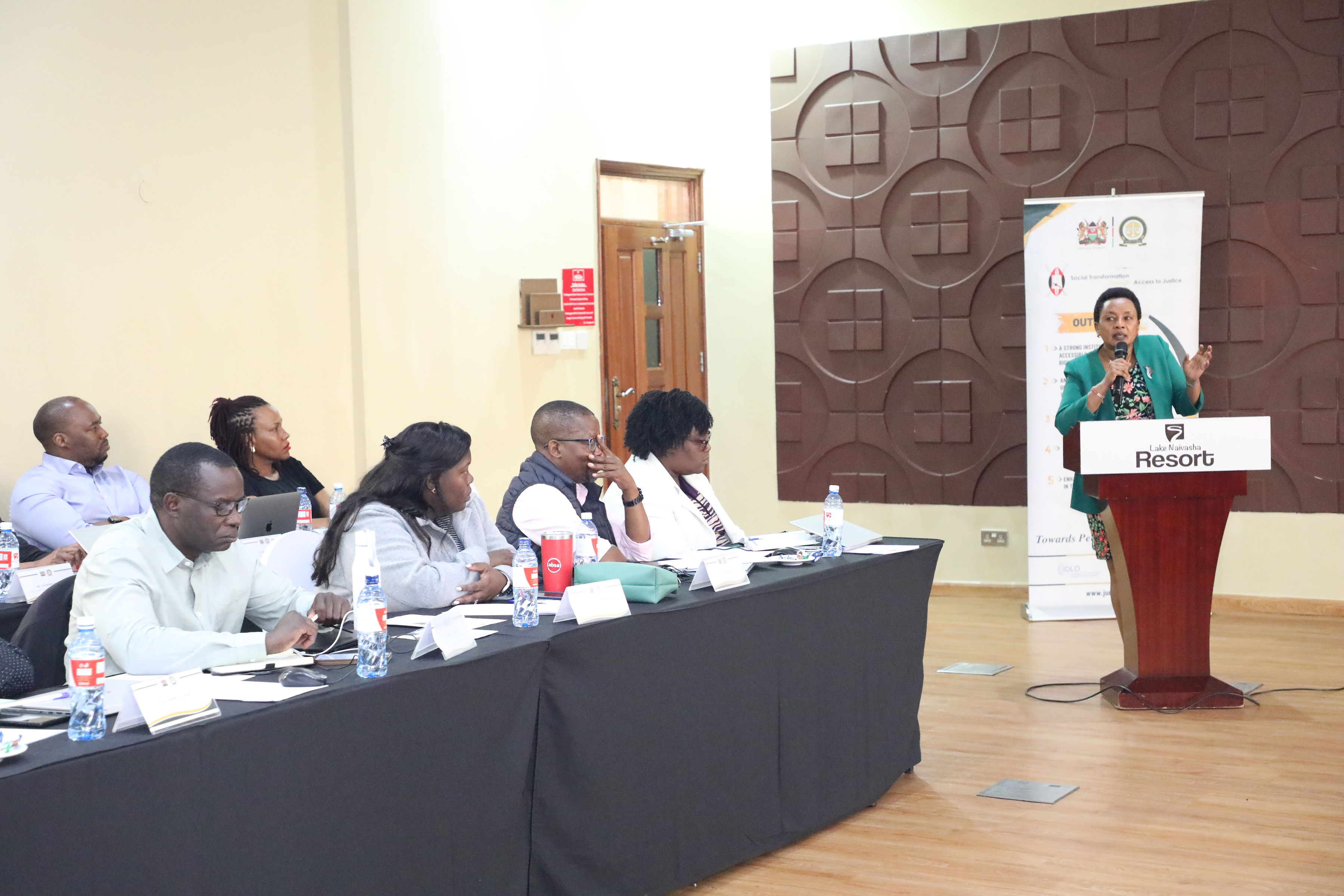 Deputy Chief Justice Philomena Mwilu addressing judicial officers at the close of the Judiciary Management Team retreat at the Lake Naivasha Resort hotel. /JUDICIARY
Deputy Chief Justice Philomena Mwilu addressing judicial officers at the close of the Judiciary Management Team retreat at the Lake Naivasha Resort hotel. /JUDICIARYThe DCJ underscored that the sole purpose of the existence of the Judiciary is to dispense justice, not just efficiently, but fairly to address the justice problems facing Kenyans.
"Every administrative function, every management process, every policy we design must converge at the point of supporting this core mandate,” she said.
Mwilu reminded registrars, directors, managers and staff of their enabling role within the justice chain.
“Judges and magistrates, courts and tribunals, sit at the very heart of justice delivery. The rest of us… exist to ensure that their work is unhindered, well supported, and efficient. When we strengthen systems around them, we strengthen justice itself.”
Mwilu said reducing bureaucracy, streamlining communication and ensuring proper resourcing were practical ways of extending the promise of justice to all Kenyans.
She insisted that efficiency and integrity are mutually reinforcing, and that managerial choices must always reflect service to the public.
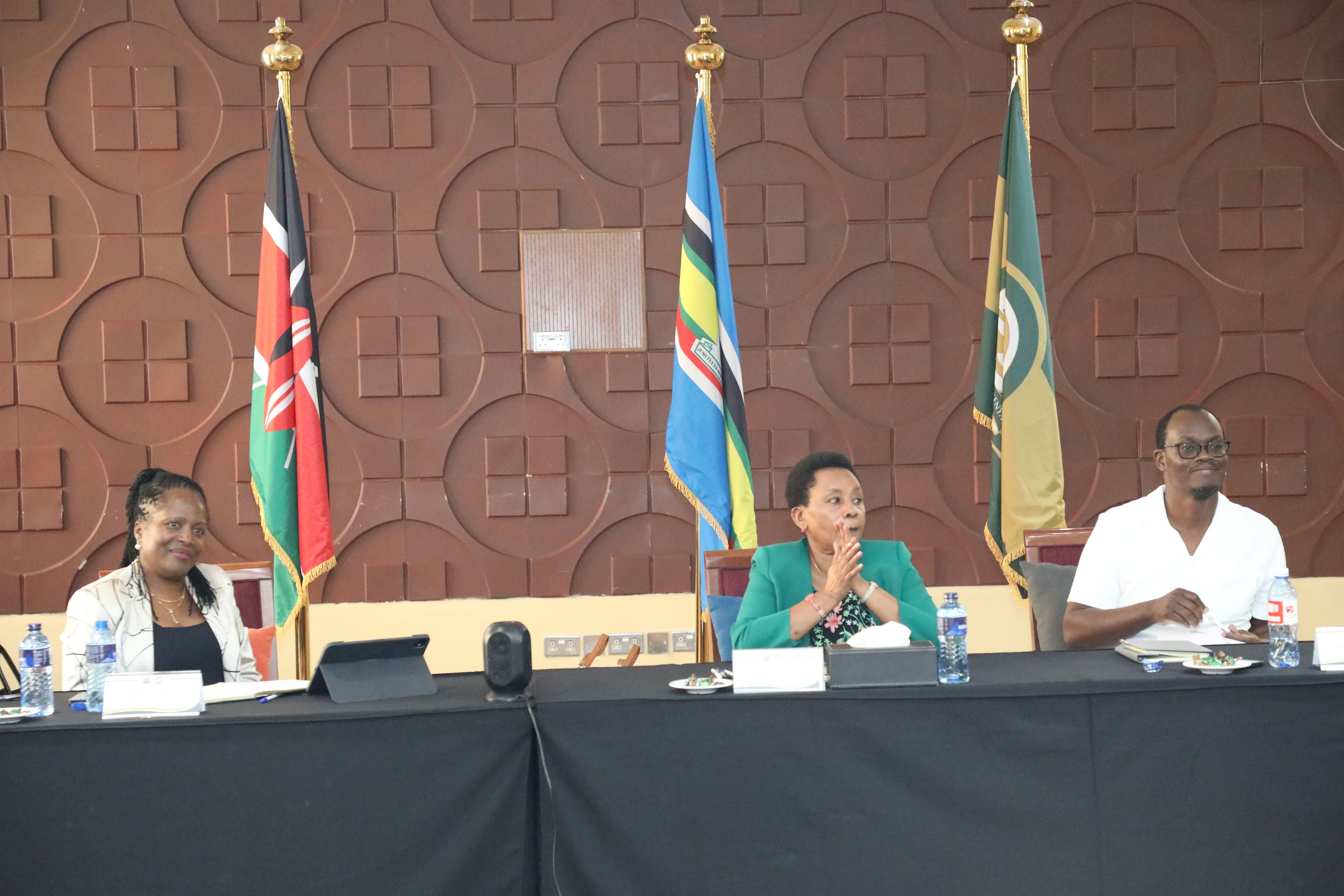 Deputy Chief Justice Philomena Mwilu during the Judiciary Management Team retreat at the Lake Naivasha Resort hotel. /JUDICIARY
Deputy Chief Justice Philomena Mwilu during the Judiciary Management Team retreat at the Lake Naivasha Resort hotel. /JUDICIARYTurning to the theme of the retreat, ‘STAJ: Assessing Progress and Aligning Priorities,’ the DCJ emphasised that the institutional blueprint must continue guiding administrative thinking and planning.
“STAJ, our institutional blueprint, is not merely a policy document. It is a living vision that continues to guide how we think, how we plan and how we serve our fellow Kenyans.”
She added that STAJ is both an institutional compass and “our collective commitment to ensure that every Kenyan, regardless of circumstance, and particularly the marginalised and vulnerable, find justice accessible, affordable, and fair.”
Mwilu urged the Judiciary’s leadership and staff to foster humility, openness and empathy in their interactions.
“Integrity and professionalism must not only define our work—they must define our relationships. The Judiciary’s culture should be one of humility in leadership, openness in communication and empathy in management.”
Acknowledging the team’s review of Performance Measurement and Management Understanding (PMMU) tools, she said accountability must be embraced as a constructive mechanism.
“Accountability is not punitive, but a mirror reflecting how far we have come and where we must improve.”
The DCJ also highlighted the Judiciary’s growing reliance on technology to transform justice delivery.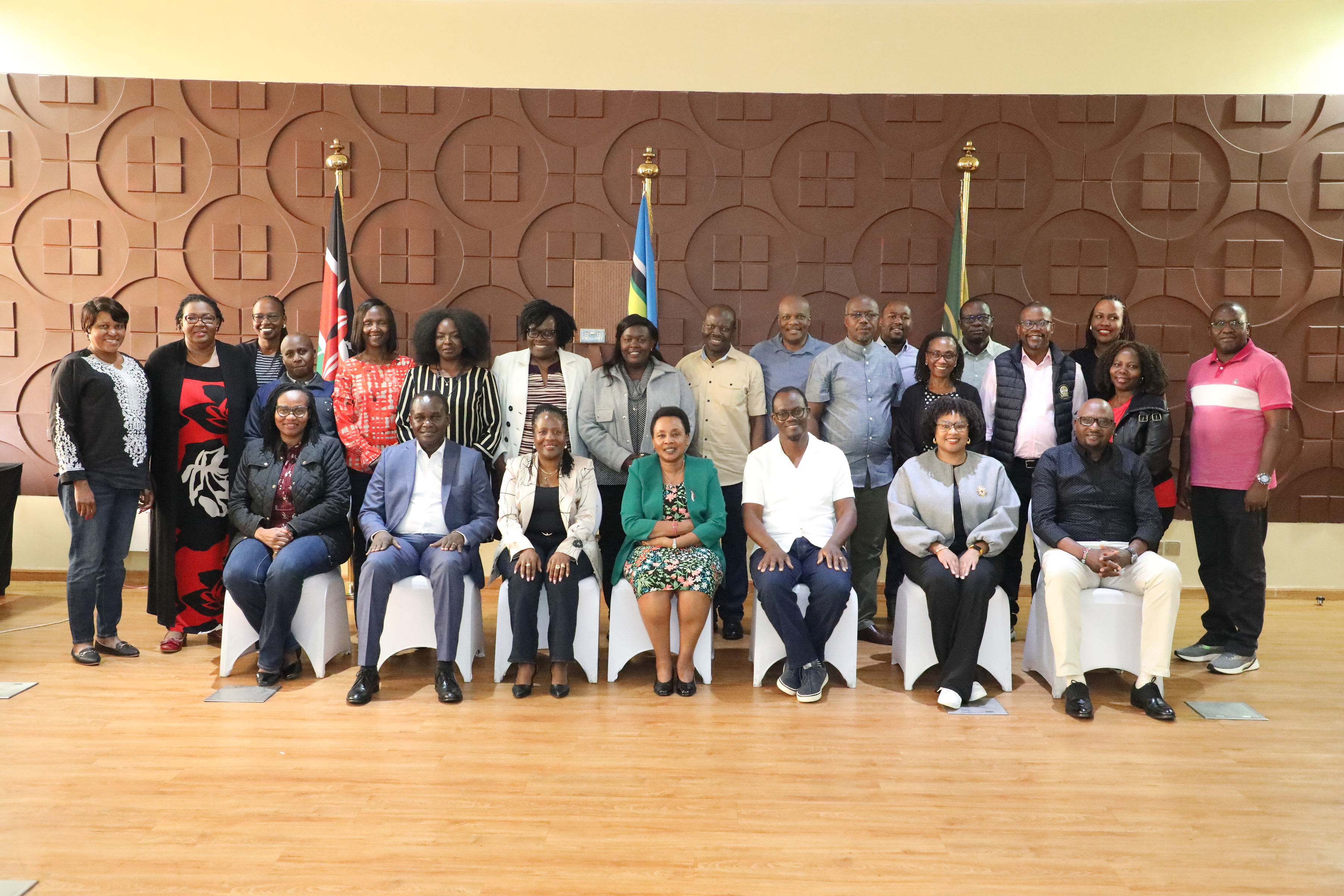 Deputy Chief Justice Philomena Mwilu with other judicial officers at the close of the Judiciary Management Team retreat at the Lake Naivasha Resort hotel. /JUDICIARY
Deputy Chief Justice Philomena Mwilu with other judicial officers at the close of the Judiciary Management Team retreat at the Lake Naivasha Resort hotel. /JUDICIARY
Commending sessions on the ICT Masterplan, the Electronic Document Management System and the proposed Situation Room, she said emerging technologies and artificial intelligence would be vital in making justice “faster, smarter and more transparent.”
But Mwilu cautioned that “we must not implement interventions for their own sake; our strategies must be based on what the evidence and data are telling us.”
She said the retreat had strengthened the management team’s readiness to improve service delivery.
It had, she noted, better-positioned leaders “to ensure that our management systems are more responsive, your leadership more accountable, and our institutional culture strengthened towards excellence in service delivery.”








